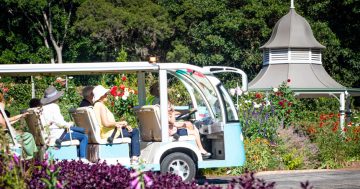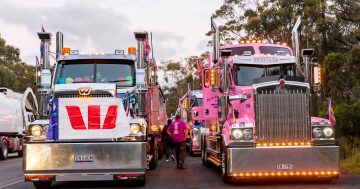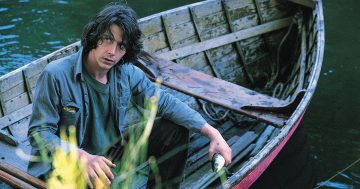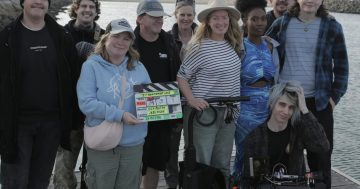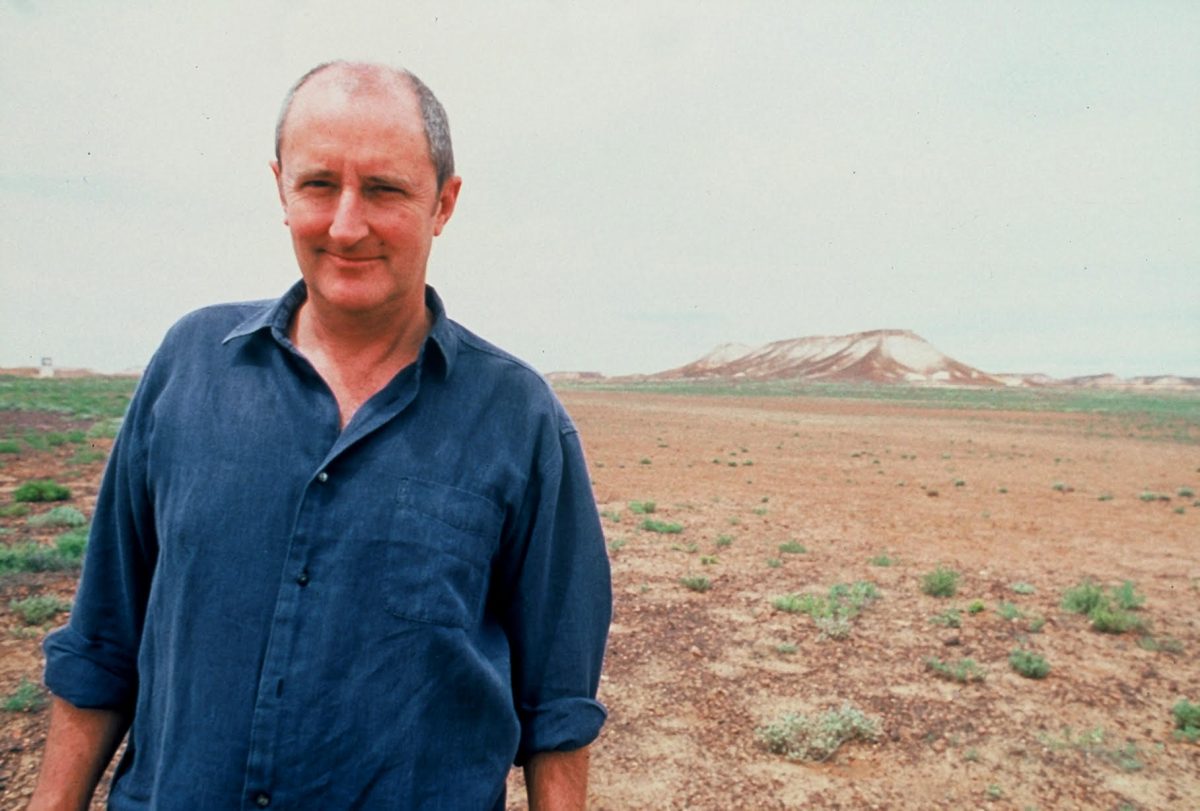
The Adventures of Priscilla, Queen of the Desert producer Al Clark is headed to the Illawarra for a special 30th anniversary event. Photo: Al Clark.
“The nature of the project was one in which we entered a tunnel, except it was an open-air tunnel and we just explored it until we were done, we ran out of film, time, actors and space. Although as you’d expect there was a lot of preparation involved, once the starting pistol went off, we became almost deranged in our commitment and application.”
Ahead of visiting Wollongong for the 30th anniversary of The Adventures of Priscilla, Queen of the Desert (1994), producer Al Clark is reflecting on whether there are any “stand-out moments” in making the film.
The answer? The whole thing, really, stands momentous in the minds of its makers and fans around the world.
But its status as an Australian film pop culture masterpiece only emerged after the fact. Though Clark says its makers were certainly very confident they had “made the film as funny and poignant” as they knew how, nobody could have foretold its impact on the film industry and indeed, on society.
Reporter and movie analyst Shane A. Bassett estimates he has seen the film about 50 times, including in 1994 when it was released in a little cinema in Sydney that doesn’t exist anymore.
“I don’t think they thought it was going to be the global hit it was,” he says.
“It was a significant year for Australian pop culture movies, with Muriel’s Wedding and The Sum of Us starring Jack Thompson and Russell Crowe – another gender-bending film. Then you had Priscilla, which nobody saw coming.
“I enjoyed how flamboyant and open the characters were – this wasn’t seen in Australian cinema at this time.”
To understand the magnitude of Priscilla’s success, however, one has to consider the context: namely, the risk of making a film celebrating alternative lifestyles in a cultural context of mid-1990s stigma, under the baton of a director (Stephan Elliott) with, at the time, only one other film under his belt.
For the actors, it was a huge gamble that absolutely paid dividends. It helped put the Aussie film industry on the global stage and, with the win of an Oscar for Best Costume Designer launched Lizzie Gardener’s Hollywood career. It was pivotal for the filmmakers as well.
“I felt the film gave me a great kind of springboard for what and how to do next,” Clark says.
Some say it prompted a significant moment in the broader gender diversity movement, and for the drag community created a whole new mainstream audience. Clark himself is cautious about claims to any “messianic aspects the film may have prompted”.
“For Stephan, I think as much as he’s a very funny man and invented in the screenplay a lot of funny and less funny obstacles for our trio to come up against, he felt at the heart of it was a very simple story,” he says.
“There was a kind of core film in the imagination, which was ultimately about a father who decides to come out to his son – and the climax is of course precisely that. Then around that was this amazing odyssey in which three very mismatched travellers, themselves mismatched with their environment, go on an adventure, and into the heart of darkness.”
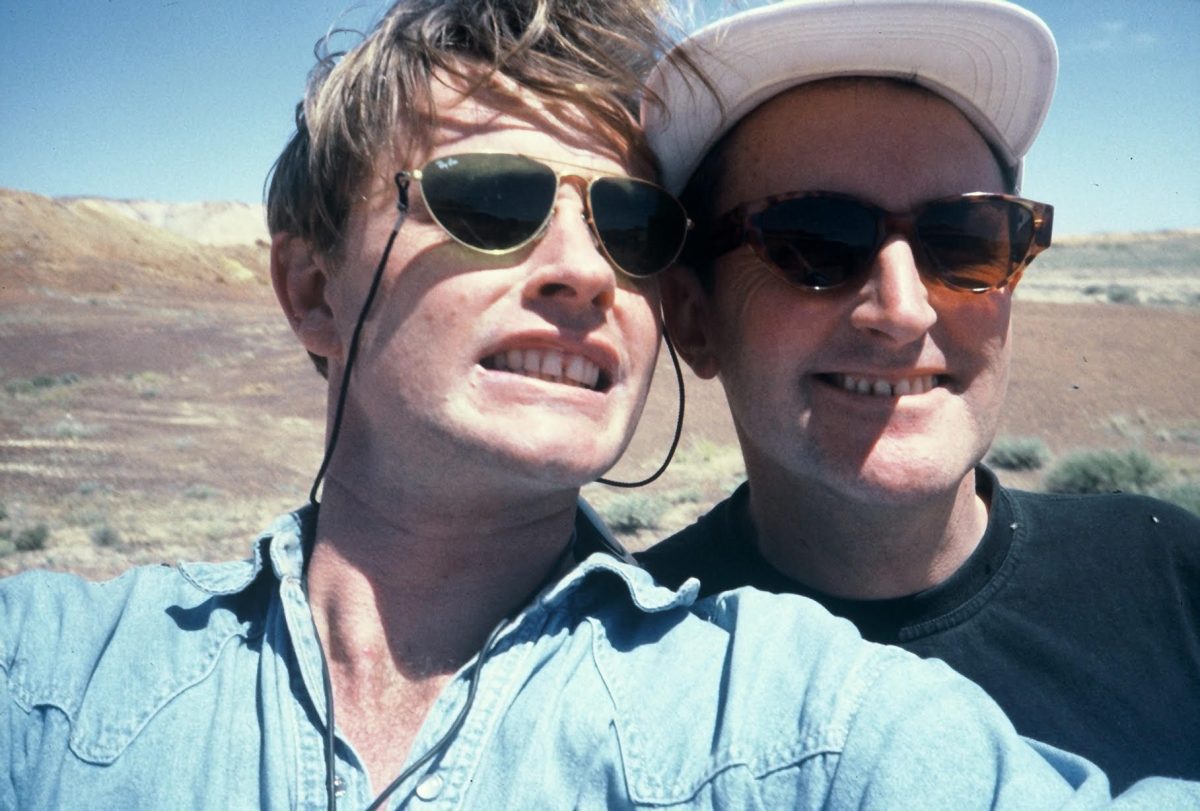
Stephan Elliott and Al Clark on site during the making of the iconic Aussie film. Photo: Al Clark.
Still, Clark admits Priscilla did things for the country no other film had yet achieved.
“It opened up the landscape literally and metaphorically and had such a different perspective on Australia,” he says.
“It aspired to be quite different to the kinds of Australian films that had traditionally represented the country at festivals and markets around the world and indeed domestically. So the film came as a surprise, which is always a great pleasure in the arts, when something can come up behind you and tap you on the shoulder.
“I think that surprise was cherished. Indeed, I know it was. People would emerge from the screening full of energy and the sense of pleasure that they had not wasted the last hour and 45 minutes of their lives. It was really a golden time for the film, its makers and actors, because there were so few of us. We had spent so much time in each other’s company before, during and after, that when it was all done – if it is ever ‘all done’ – though we got on with our lives, we knew it was an interlude none of us would easily forget.”
Tomorrow (19 November) Screen Illawarra will host a screening of The Adventures of Priscilla, Queen of the Desert to mark its anniversary, followed by a book signing and Q&A with Clark, who has authored two memoirs about his career.
“It’s an opportunity to see the film again in a different context, at a different time, in a different setting; to view it both as a piece of history and as pure entertainment, and to decide whether it still gives them pleasure and if so, in what way,” Clark says.
“I’ve recently written two volumes of autobiography in which the film features, for obvious reasons, quite prominently. This gives me an opportunity when the speaking part of evening begins of mediating on an unusual life and how I’ve enjoyed it.”
Bassett adds that it’s a chance to experience on a big screen a “trailblazer film and unintentional blockbuster that probably wouldn’t get made now”.
“There’s talk of a sequel but I am sure it would be sanitised. The fun and games these guys got up to, some of the more politically incorrect moments, just wouldn’t fly today. It’s lightning in a bottle – it could never be captured again,” he says.
“The chance then to hear from Al Clark … it’s one thing to watch a documentary or a ‘making of’ but it’s monumental having a guest like that talking behind the scenes in person.”
Screen Illawarra’s screening of The Adventures of Priscilla, Queen of the Desert plus book signing and Q&A with Al Clark takes place Tuesday 19 November from 6:30 pm to 9 pm at Gala Cinema, 204 Cowper St Warrawong – book via Humanitix.








